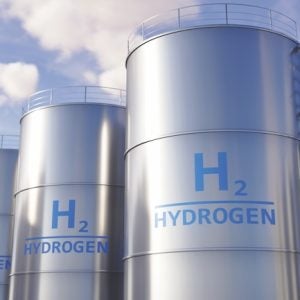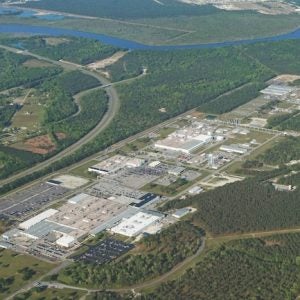The European Commission carried out a survey to examine how the public views issues of radwaste management. The survey covered the population of the EU aged 15 and over. In total, 16,000 interviews were carried out, with approximately 1000 interviews in each country.
According to the poll:
• Nuclear power should remain an option for electricity production, if all the waste is safely managed.
• The generation using nuclear energy should be responsible for dealing with the waste.
• Each country producing radwaste should develop its own disposal site.
The poll also highlighted:
• A lack of public awareness regarding existing programmes for radwaste management.
• Limited knowledge of the lack of greenhouse gas emissions produced by nuclear power plants.
• Major differences in perceptions from one EU state to another.
information on radwaste
Individual countries had large variations from average EU figures. Figures of people who regard themselves as “not at all well informed” was Belgium (48%), Portugal (47%) and Spain (43%) compared with Denmark (10%), Sweden (12%) and Finland (16%).
Confidence in sources of information
The survey assessed what were trusted sources of information on nuclear issues. Independent scientists (32.0%) and NGOs (31.4%) are the most trusted sources. The least trusted sources are the nuclear industry itself (10.2%) and the EU (11.0%).
National agencies responsible for radwaste management are considered trustworthy in Sweden (59.5%), but much less so in Spain (14.4%). However, these bodies may not be very well known; for example, in Denmark, they are considered trustworthy (45.5%) even though no such agency exists.
knowledge about radwaste
When questioned as to whether nuclear plants produce radwaste, 91% believed they do. As questions became more technical, lack of knowledge grew. For example, 69% are aware that hospitals produce nuclear waste, and only 44% realise that the oil industry also produces radwaste.
Siting of disposal facilities
Across the EU, 63% of respondents endorse the concept that each country should be responsible for developing its own disposal site. This is a decrease on the 75% in the 1998 survey who believed this was the best strategy.
Over the same period, there has been a corresponding increase in the acceptance of the regional solution, with the figure climbing from 12% to 18%.
Proximity to underground disposal sites
In both the 1998 and 2001 surveys, respondents were asked about their concerns regarding proximity to a disposal site for radwaste.
In 1998, the issues that caused the most concern were health (74%), impact on the local environment (71%) and long-term risks (67%).
The 2001 survey highlighted similar concerns, with the risk of leaks while the site was operating (39%) and long-term risks for future generations (38%).
Current disposal programme for low-level waste
The 2001 survey asked what happens to the treated low-level waste that is routinely packed into steel drums.
In the three years between the two surveys, the percentage of people responding that they did not know rose from 17% to 26%. The growth of the ‘don’t knows’ was substantial in several countries, the most significant being Portugal (34% to 50%), Ireland (29% to 42%), Italy (27% to 42%) and Spain (31% to 42%).
radwaste management
Across the EU as a whole, 29% of respondents were very worried at the way radwaste is handled. However, figures for individual countries range from 11% in Sweden through Austria at 33% to Greece at 65%.
The results show significant shifts in opinion between 1998 and 2001. The average EU figure for those very worried about radwaste management in their own country fell from 41% to 29%.
Regarding radwaste management in other countries, people in general are more worried about EU countries other than their own, and more worried about the management of radwaste in central and eastern Europe.
General opinions
Opinions on five issues were assessed.
Is the media fair in reporting on radwaste issues?
Opinion on this is divided, with 41.6% agreeing and 41.3% disagreeing. There was a marked variation between countries, with 59.4% of Irish people trusting the media, compared with only 26.8% of Italians.
Is the industry open in providing information about radwaste?
Just 18.9% of Europeans believe that the industry is open. The extremes are Sweden, where 40% think the industry is open in providing information, and Italy, where the figure is just 10%.
Does nuclear produce less greenhouse gas than fossil energy?
Over one-third of those polled didn’t know. This ranged from 3.6% in Sweden to 55% in Spain. About 41% of people agreed with the statement.
If all waste is managed safely, should nuclear power remain an option for electricity production?
Across Europe, 51% think it should, with 24% who don’t know. In Austria, the results are diametrically opposite to those of the rest of the EU.
Should those using nuclear be responsible for dealing with waste?
In total, 80% agree with this, compared to 54% in the 1998 survey.






